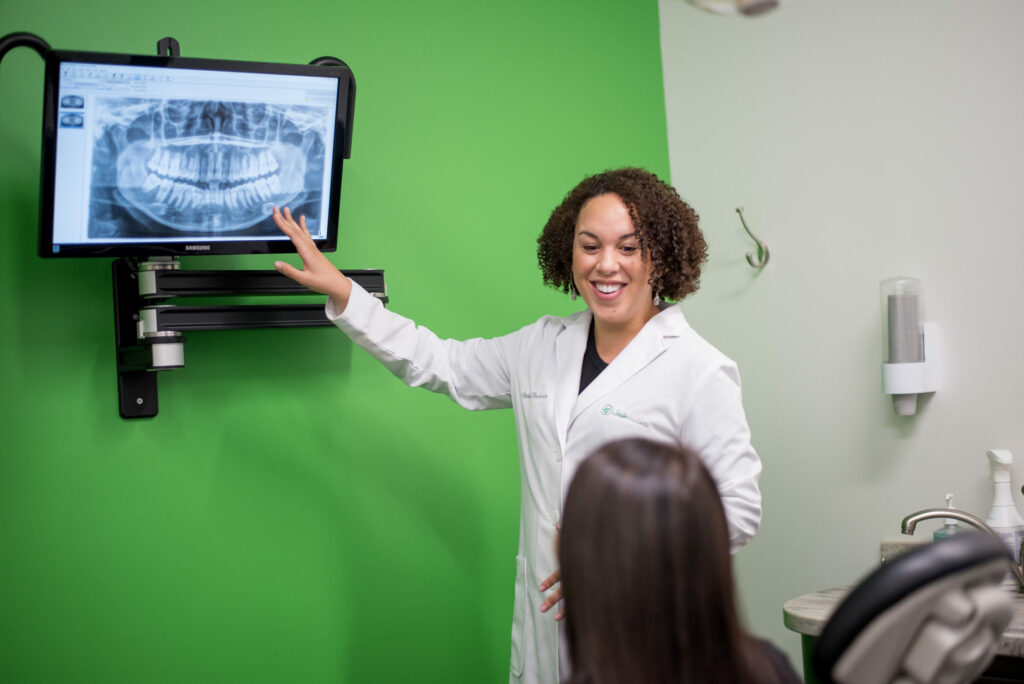Root canals have gotten a bad rap over the years and are generally thought of as horrible, painful procedures. In fact, this misconception is so widespread that it’s almost comical.
Yet ironically enough, nothing could be further from the truth! While decades ago root canals may have been horrible affairs, a lot has changed in the dentistry field since then. Today, root canals are quick, painless procedures.
What Is a Root Canal?
Root canal therapy is a treatment we use to save an infected or badly damaged tooth, rather than removing it altogether. With local anesthesia and modern dentistry, root canals are safe, gentle procedures.
In fact, the pain of living with a damaged tooth is typically worse than any discomfort someone might experience during a root canal.
Why Might Someone Need a Root Canal?
Patients need root canal therapy when bacteria enters the pulp, or soft core, of one of their teeth. Usually this occurs when someone has a deep cavity, cracked tooth, or loose filling.
You might need a root canal if you are experiencing any of the following symptoms:
- Persistent Pain
- Sensitivity to Heat/Cold
- Discolored Tooth
- Swollen Gums
- Pain When Eating or Touching the Tooth
- A Chipped or Cracked Tooth
- Loose-Feeling Tooth
However, rather than trying to self-diagnose, we recommend you see us for a visit, since there are many dental problems that have similar symptoms.
What Is the Root Canal Procedure Like?
Before beginning root canal therapy, we’ll first obtain x-rays to see if there are any infections in the surrounding bone. Then, after we’ve looked at your x-rays, we’ll numb your mouth, so you’re comfortable throughout the procedure.
During the root canal itself, we’ll open your tooth and remove the damaged pulp within it. Then, we’ll clean and disinfect the full length of your tooth.
Once the tooth is cleaned, we’ll fill it with a rubber-like material before sealing it. To protect the tooth, we’ll also add a crown or filling. Because the damaged tooth has been weakened, this restoration will strengthen it, restoring your tooth to its normal function.
Typically, this entire process occurs over one or two appointments.
How Should I Care for Myself After a Root Canal?
After a root canal, your mouth will probably feel a bit sensitive. To counteract this, we recommend an over-the-counter (OTC) pain reliever. We may also suggest that you rinse your mouth periodically with warm salt water.
While recovering from root canal therapy, you’ll want to avoid hard foods, so you don’t inadvertently put pressure on your tooth. Instead, we recommend that initially, you stick to soft foods.
How Can I Schedule a Dental Appointment at Smile Hilliard?
At Smile Hilliard, it’s convenient to schedule a dentist appointment! To do so, just schedule your visit online or call our office at 614.328.9489 to request an appointment. We’re conveniently located at 6304 Scioto Darby Road in Hilliard.






